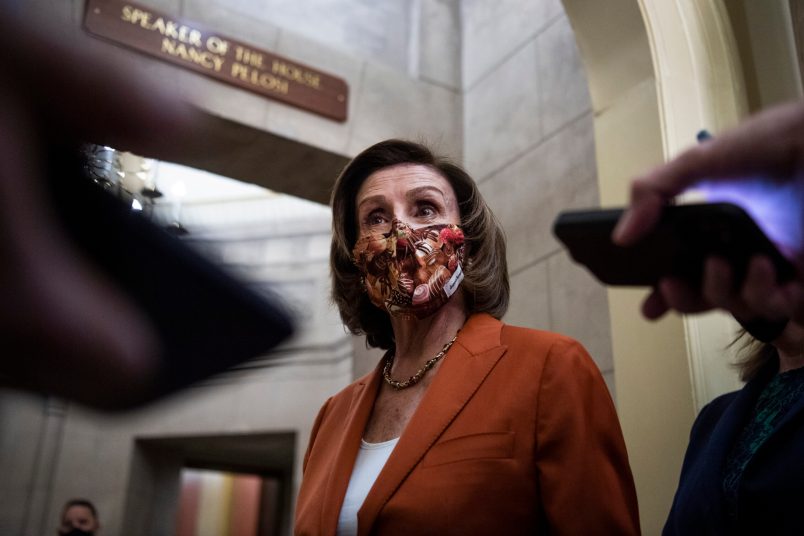They’re sweating it.
House Republicans really want you to know that they love roads and bridges — but just not in this particular case.
Not, in other words, when Democrats score a legislative victory — with the help of a handful of Republicans — that the Trump administration failed to achieve.
Shortly after the bipartisan infrastructure bill passed in the House on Friday night, Republicans who voted against it swiftly issued defensive statements scrambling to explain that they’re all for infrastructure, but voted against the bill anyway.
They gave various reasons as they contorted themselves, including Democrats’ still-pending reconciliation package — a “tax and spending spree,” in their words, spearheaded by House Speaker Nancy Pelosi (D-CA).
Despite the infrastructure bill’s passage in the Senate in August with 19 GOP senators on board, a mere 13 House Republicans broke ranks to pass it in the House on Friday.
“For too long, our federal government has failed to focus its resources on investments that modernize our infrastructure,” Rep. Andrew Clyde (R-GA) lamented in one representative statement. “Americans desperately need true infrastructure like roads, bridges, broadband, and modern shipping and energy production facilities, that grow our economy and will meet the needs of future generations.”
But! Clyde continued: this is not that! Don’t be fooled. “Yet under the cover of darkness, Speaker Pelosi forced a vote on a massive $1.2 trillion piece of legislation that is estimated to add more than $250 billion to our nations projected debt through 2031,” Clyde stated.
With the House having cleared the bipartisan infrastructure bill and adopted the rule for consideration of the Democrats’ reconciliation package, Republicans were quick to paint its passage as a “pathway to socialism.”
“I support better roads, bridges, waterways, and broadband internet for the great State of West Virginia,” Rep. Alex Mooney (R-WV) said in a statement. “I do not support attaching billions of dollars of wasteful spending and tax hikes as a part of the deal.”
Rep. Young Kim (R-CA) made sure to note that she “worked in good faith with the Problem Sovlers Caucus to create a bipartisan, commensense infrastructure framework.” But she lamented that the bill would be used as a “bargaining chip.”
“I cannot in good conscience support trillions more in federal spending that will hike taxes, raise prices on everyday goods even more and put our economic recovery in jeopardy,” Kim said in a statement.
Rep. Carol Miller (R-WV) said she looked forward to support projects her state needs “in a different bill.”
“Because Nancy Pelosi has now linked this bill to the trillion-dollar socialist spending spree, I voted ‘no,'” she continued.



